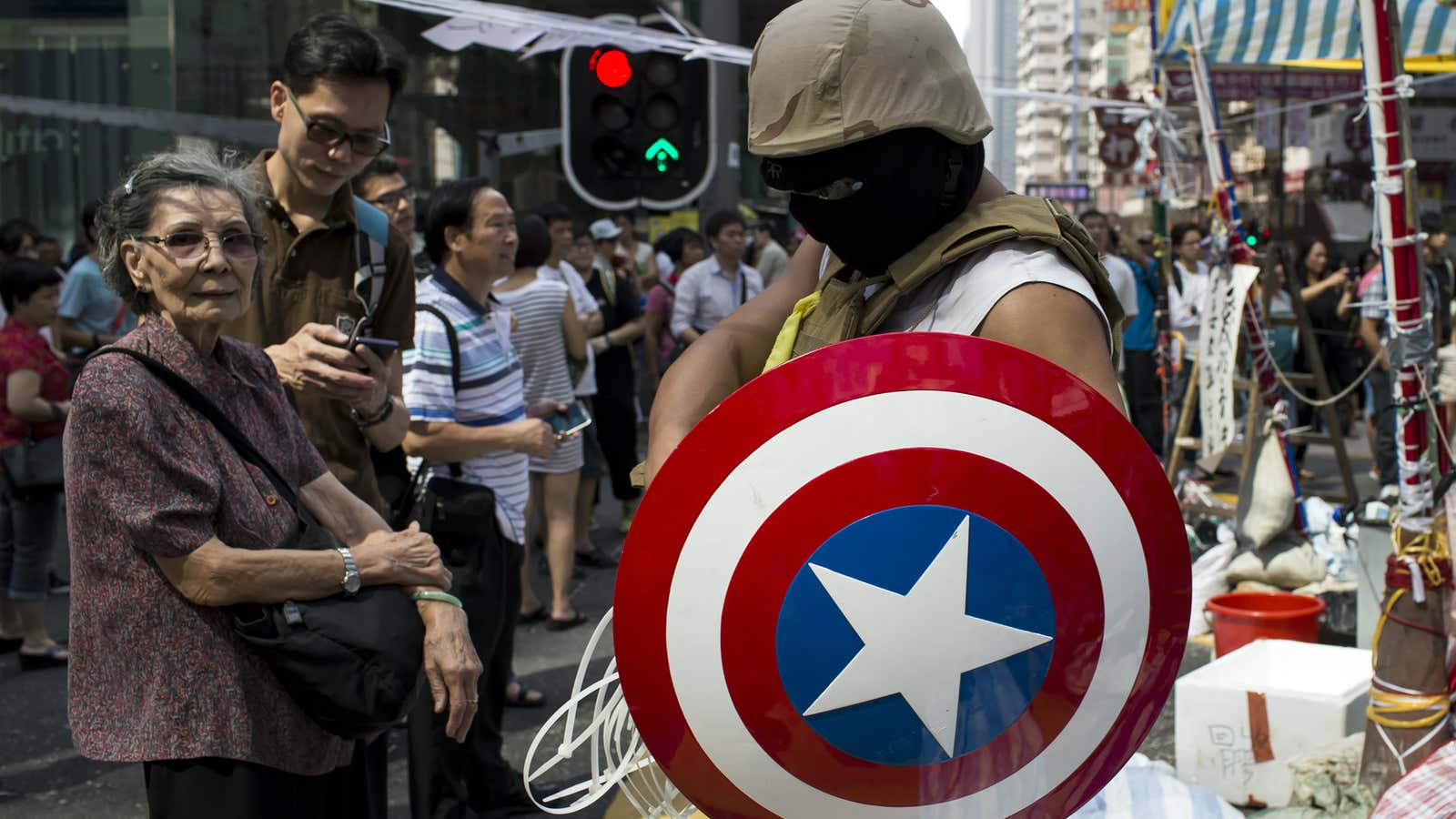HONG KONG—There’s an easy explanation for the protests that continue to paralyze parts of Hong Kong, after thwarting a police crackdown over the weekend: they are being supported by “external forces,” according to CY Leung, the city’s top official. His remarks echo a refrain from his bosses in Beijing, who claim that foreign forces, and particularly the US, are not only cheering the pro-democracy “Umbrella Movement,” but directly controlling it.
“The US may enjoy the sweet taste of interfering in other countries’ internal affairs, but on the issue of Hong Kong it stands little chance of overcoming the determination of the Chinese government to maintain stability and prosperity,” the state-run People’s Daily wrote in an editorial.
Never mind that these accusations have already been denied publicly and privately by the protests’ organizers, “categorically rejected” by the US state department and called “erroneous” by specific US pro-democracy groups named by Beijing. Leung, while short of specifics, remains unswayed. “I shan’t go into details, but this is not entirely a domestic movement,” he said during an interview last night in Hong Kong.
Lueng, whose government is scheduled to meet with protesters for the first time tomorrow, might gain a different perspective by taking a quick walk through the protest sites. If you discount the smell of KFC that sometimes wafts over the tents in Admiralty, there’s little tangible evidence of any US influence whatsoever.
In fact, if you had to pick a “foreign influence” by walking through the protest sites, you’d probably name John Lennon, thanks to the number of banners and signs bearing inked drawings and the preponderance of “Imagine” quotes:
Protesters interviewed in Admiralty and other demonstration sites say that Beijing’s August 31 ruling on the city’s elections and Leung’s poor governance are the main reason they are demonstrating—along with a desire to assert Hong Kong’s independent cultural identity apart from the mainland.
“We’re trying to say to mainland China, ‘You have to respect these cultural differences and allow them to grow,'” artist Kacey Wong told Quartz earlier this month.
Protester Jeffrey Hui told Quartz he hadn’t seen “any solid evidence of foreign influence on these protests.” Instead, he explained in a separate interview with the BBC, they are “something which is purely by citizens, purely by those who live in Hong Kong, those who care about Hong Kong, who stand up and go against the regime.”
“I don’t have a clear understanding for what US democracy is,” said Ray Tse, a 24-year-old tutor and protester who was living in a tent on Connaught Road, a highway overpass that runs through the center of town. “We’re fighting for what we want.”
When the US has been mentioned at all in recent weeks in Hong Kong, it has been held up as an example of a flawed democracy, no matter what side of the “Umbrella Movement” camp they’re in. As one anti-Occupy protester told a Huffington Post reporter at a protest against the “Apple Daily,” a pro-democracy newspaper:
It’s not just the anti-protest groups that are citing the US as an example not to emulate. When Quartz asked Emily Lau, one of the most outspoken pro-democracy legislators in the city, whether the recent Hong Kong police beating of a protester was a sign of the city’s rule of law breaking down, she said “Of course,” then added: “It’s not America where you have police killing people. In Hong Kong we are not used to this.”
